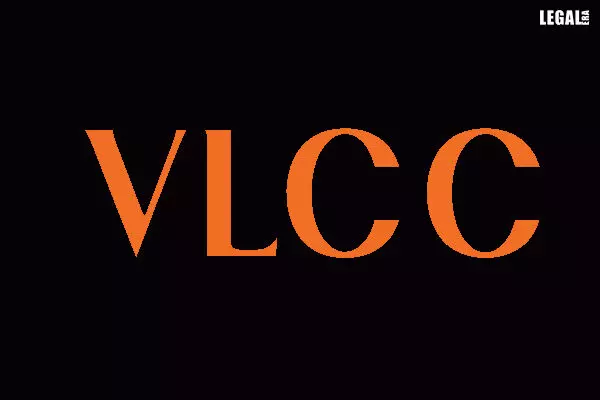- Home
- News
- Articles+
- Aerospace
- Artificial Intelligence
- Agriculture
- Alternate Dispute Resolution
- Arbitration & Mediation
- Banking and Finance
- Bankruptcy
- Book Review
- Bribery & Corruption
- Commercial Litigation
- Competition Law
- Conference Reports
- Consumer Products
- Contract
- Corporate Governance
- Corporate Law
- Covid-19
- Cryptocurrency
- Cybersecurity
- Data Protection
- Defence
- Digital Economy
- E-commerce
- Employment Law
- Energy and Natural Resources
- Entertainment and Sports Law
- Environmental Law
- Environmental, Social, and Governance
- Foreign Direct Investment
- Food and Beverage
- Gaming
- Health Care
- IBC Diaries
- In Focus
- Inclusion & Diversity
- Insurance Law
- Intellectual Property
- International Law
- IP & Tech Era
- Know the Law
- Labour Laws
- Law & Policy and Regulation
- Litigation
- Litigation Funding
- Manufacturing
- Mergers & Acquisitions
- NFTs
- Privacy
- Private Equity
- Project Finance
- Real Estate
- Risk and Compliance
- Student Corner
- Take On Board
- Tax
- Technology Media and Telecom
- Tributes
- Viewpoint
- Zoom In
- Law Firms
- In-House
- Rankings
- E-Magazine
- Legal Era TV
- Events
- Middle East
- Africa
- News
- Articles
- Aerospace
- Artificial Intelligence
- Agriculture
- Alternate Dispute Resolution
- Arbitration & Mediation
- Banking and Finance
- Bankruptcy
- Book Review
- Bribery & Corruption
- Commercial Litigation
- Competition Law
- Conference Reports
- Consumer Products
- Contract
- Corporate Governance
- Corporate Law
- Covid-19
- Cryptocurrency
- Cybersecurity
- Data Protection
- Defence
- Digital Economy
- E-commerce
- Employment Law
- Energy and Natural Resources
- Entertainment and Sports Law
- Environmental Law
- Environmental, Social, and Governance
- Foreign Direct Investment
- Food and Beverage
- Gaming
- Health Care
- IBC Diaries
- In Focus
- Inclusion & Diversity
- Insurance Law
- Intellectual Property
- International Law
- IP & Tech Era
- Know the Law
- Labour Laws
- Law & Policy and Regulation
- Litigation
- Litigation Funding
- Manufacturing
- Mergers & Acquisitions
- NFTs
- Privacy
- Private Equity
- Project Finance
- Real Estate
- Risk and Compliance
- Student Corner
- Take On Board
- Tax
- Technology Media and Telecom
- Tributes
- Viewpoint
- Zoom In
- Law Firms
- In-House
- Rankings
- E-Magazine
- Legal Era TV
- Events
- Middle East
- Africa
Consumer Rights Upheld: Coaching Institutes Must Refund Fees for Incomplete Courses, Rules Kerala Commission

Consumer Rights Upheld: Coaching Institutes Must Refund Fees for Incomplete Courses, Rules Kerala Commission
The District Consumer Disputes Redressal Commission (CDRC) at Ernakulam has ruled in favour of a student who sued VLCC Institute, Kochi, for failing to provide timely classes, including online options, as promised in their course offerings.
The Ernakulam CDRC bench, composed of President D.B. Binu, Members V. Ramachandran and Sreevidhia T.N., highlighted the crucial role of consumer protection in the education sector. They emphasised the need to ensure refunds for students who choose to leave courses midway for valid reasons.
The Bench observed that while many coaching institutions provide valuable services for higher education preparation, unethical institutions exploit students and families. Such institutions shouldn't retain fees from students who leave due to dissatisfaction. Ensuring fairness and preventing unfair terms is crucial, especially in education, to guarantee students and parents the respect and honesty they deserve.
The complainant enrolled in a diploma course offered by the institute. While she initially participated in physical classes, she later transitioned to online learning due to a positive COVID-19 test. However, the complainant alleges that the institute subsequently discontinued the course altogether.
The complainant further alleged that the institute's Regional Head persuaded her to enrol in two advanced courses, for which she duly paid the required fees. However, despite her enrolment and payment, she claimed that the institute never offered any classes for either course.
Upon requesting a refund, the complainant was presented with alternative options by the institute. These included receiving VLCC products of equivalent value to the paid fees or having the fees adjusted against the enrolment of a relative or sibling.
The Commission determined that the complainant enrolled in the courses with the justifiable expectation of receiving high-quality coaching. However, the institute's failure to deliver on this promise constituted a significant deficiency in service.
"The opposite parties' suggestion to adjust the course fees against the enrolment of a relative or sibling is not only unfair but also contrary to consumer protection principles. Fees paid by the complainant should not be rendered non-refundable in such a manner. Such practices are deemed unconscionable and voidable, as highlighted by legal precedents," the Commission observed.
The Commission ordered the institute to refund the complainant's fees and pay ₹60,000 for mental anguish, hardship, inconvenience, and legal costs.



